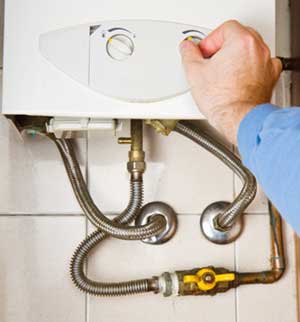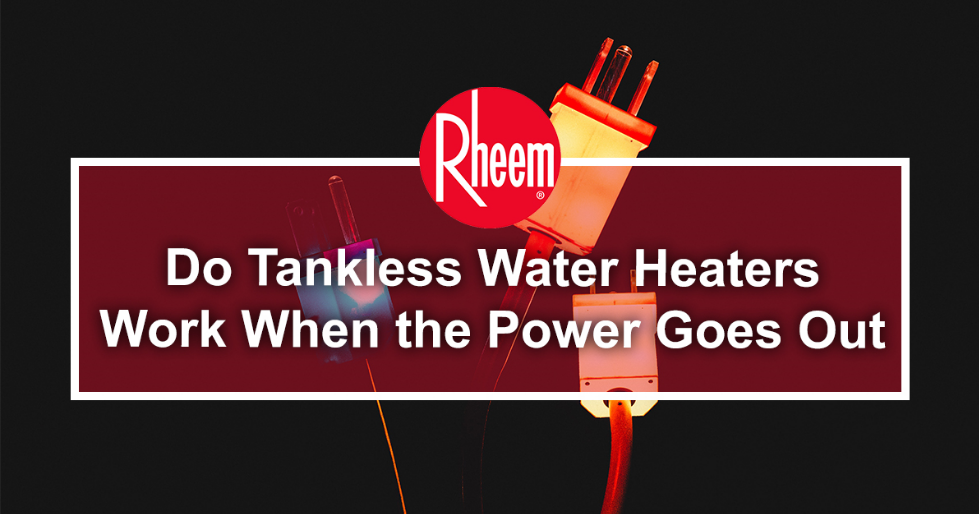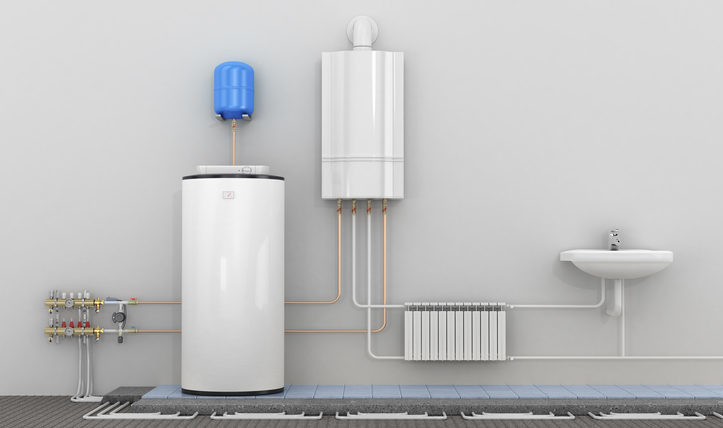A tankless water heater requires power to operate. Without electricity, it cannot heat water.
Tankless water heaters provide a continuous supply of hot water on demand. They are energy-efficient and save space compared to traditional water heaters. Many homeowners prefer them for their convenience and lower energy bills. However, these systems rely on electricity or gas to function.
During power outages, users cannot access hot water unless the system has a backup power source. Understanding how these heaters work helps you make informed decisions about installation and maintenance. This knowledge is crucial for ensuring you have reliable hot water, especially in emergencies. Explore the benefits and limitations of tankless systems to determine if they suit your needs.
Page Contents
The Basics Of Tankless Water Heaters
Tankless water heaters heat water directly. They do not store it like traditional heaters. This means they provide hot water on demand.
These systems use a heat exchanger. When you turn on the hot water tap, cold water flows through the unit. The heater then warms the water instantly.
Traditional heaters store hot water in a tank. They need to constantly heat this water. This can waste energy.
Tankless heaters are more efficient. They only heat water as needed. This leads to lower energy bills and less waste.
| Feature | Tankless Heaters | Traditional Heaters |
|---|---|---|
| Storage | No | Yes |
| Energy Efficiency | High | Lower |
| Hot Water Availability | On Demand | Limited by Tank Size |

Credit: www.atlantisplumbing.com
Electrical Needs For Tankless Systems
Tankless water heaters need a power source to function properly. Most models require electricity to operate the control systems. Some units may also use gas, but they still need power for ignition and sensors.
Power requirements vary by model. Many systems need around 120 volts to work. It is important to check the specific needs of each unit.
| Power Type | Voltage Requirement |
|---|---|
| Electric Tankless Heater | 240V |
| Gas Tankless Heater | 120V |
In case of a power outage, consider backup options. A generator can provide electricity during outages. Another option is a battery backup system. These solutions ensure hot water is available when needed.
Impact Of Power Outages On Water Heating
Power outages can greatly affect tankless water heaters. These systems rely on electricity to function. Without power, hot water is unavailable immediately. Users may experience cold showers and disrupted daily routines.
Over time, frequent power outages can lead to bigger issues. Water quality may decrease without proper heating. Tankless systems can become damaged without regular use. Regular maintenance is crucial to keep them running smoothly.
| Immediate Effects | Long-Term Considerations |
|---|---|
| Cold showers | Reduced water quality |
| Disrupted routines | Potential system damage |
| No hot water | Need for maintenance |

Credit: www.rheemmalaysia.com
Gas Vs. Electric Tankless Heaters
Gas and electric tankless heaters work differently. Gas heaters depend on natural gas or propane. They do not need electricity for heating water. This means they can work during a power outage.
Electric heaters, on the other hand, require a power source. They use electricity to heat water on demand. Without electricity, these heaters will not operate at all.
For homes in areas with frequent power outages, gas heaters are a better option. They provide hot water even when the lights go out. Consider your needs when choosing between these two types.
Battery Backup Solutions
Battery backup solutions can keep your tankless water heater running during power outages. Different types of batteries serve this purpose well. Here are the common types:
| Battery Type | Advantages |
|---|---|
| Lead-Acid | Cost-effective and widely available. |
| Lithium-Ion | Longer lifespan and faster charging. |
| Gel Batteries | Safe for indoor use and maintenance-free. |
Proper installation is crucial for effective battery backup. Ensure all connections are secure and follow the manufacturer’s guidelines. Regular maintenance also helps prolong battery life. Check batteries for corrosion or leaks. Replace old batteries as needed for safety and performance.

Credit: majorenergy.com
Alternative Power Sources
Using solar energy can power a tankless water heater. This method harnesses the sun’s energy. Solar panels convert sunlight into electricity. The stored energy can heat water, even without grid power.
Generators are another option during power outages. They provide backup energy for tankless water heaters. Choose a generator that matches the heater’s power needs. Make sure to follow safety guidelines while using a generator.
| Power Source | Benefits |
|---|---|
| Solar Energy | Renewable, eco-friendly, and cost-effective in the long run. |
| Generator | Reliable backup during outages, easy to set up. |
Energy Efficiency And Savings
Tankless water heaters provide excellent energy efficiency. They only heat water as needed. This can lead to significant savings on energy bills. Over time, these savings can outweigh the initial cost.
Consider the cost-benefit analysis before purchasing. An upfront investment may seem high, but the long-term benefits are worth it. Many users report lower energy bills within the first year.
| Factor | Cost | Benefit |
|---|---|---|
| Initial Cost | Higher | Long-term savings |
| Energy Use | Lower | Less waste |
| Longevity | More | Longer lifespan |
Tankless water heaters also have an environmental impact. They reduce carbon footprints by using less energy. This makes them a greener choice for homeowners.
Using a tankless system can lead to a more sustainable lifestyle. Saving energy means less reliance on fossil fuels. Every small step contributes to a healthier planet.
Preparing For Emergencies
Having a solid emergency preparedness plan is essential for any household. Consider how to maintain hot water during power outages. Tankless water heaters rely on electricity to operate. This means they won’t work without power.
Investing in redundant systems can help. A backup generator ensures that your water heater runs during outages. Portable heaters can also provide hot water in emergencies. Always keep extra fuel for these systems on hand.
Regularly check your emergency supplies. Ensure you have enough batteries, flashlights, and water. Knowing how to access hot water without power is vital.
Conclusion
Tankless water heaters primarily rely on electricity or gas to function. Without power, these systems cannot provide hot water. For those seeking reliable hot water during outages, consider alternative solutions, like traditional water heaters or backup generators. Understanding your options will help ensure comfort and convenience in any situation.
